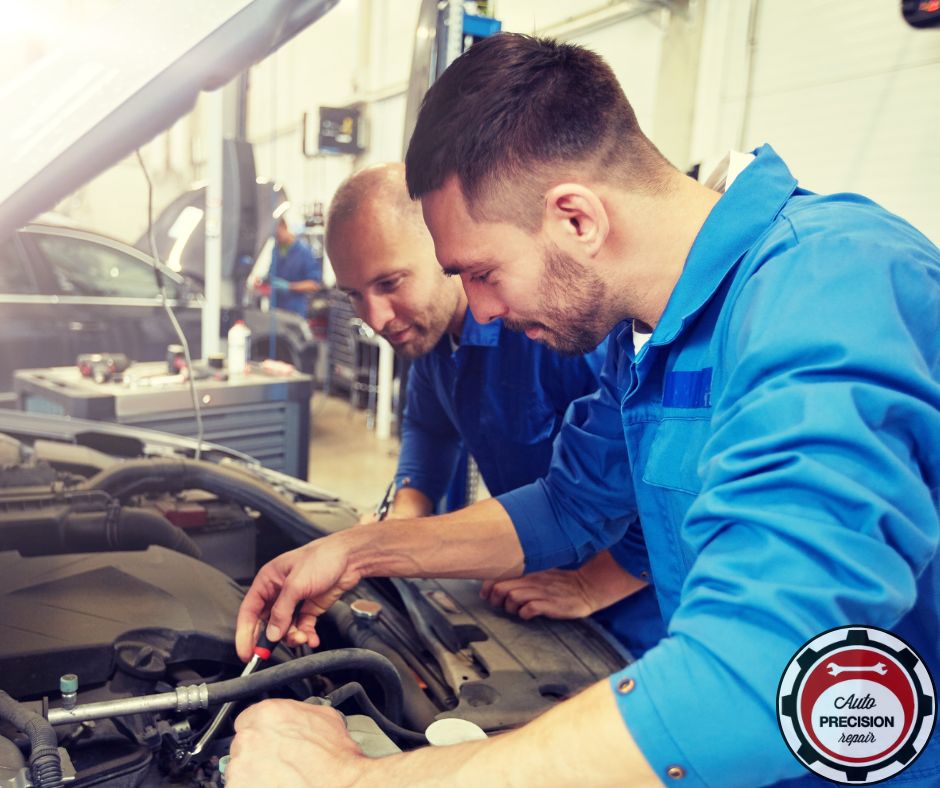
Taking care of repairs and maintenance for your car can be a fulfilling and cost-effective endeavor. With the right tools, a little knowledge, and a touch of perseverance, you can tackle various repair tasks and upkeep on your own. In this comprehensive car repair handbook, we bring you expert tips and techniques that will set you on the right track.
https://autoprecisionrepair.blogspot.com/2023/05/embarking-on-journey-of-car-repair.html
Keep a basic toolkit in the trunk of your vehicle
Equipping yourself with the right tools is one of the initial steps to becoming a DIY repair whiz. A must-have toolkit should include screwdrivers, pliers, a socket set, wrenches, and a set of jumper cables. Having these tools readily available in your vehicle ensures that you can handle basic repairs and deal with emergencies while on the road.
Know when to DIY and when to seek professional help
While there are many repairs you can confidently take on yourself, there are certain tasks best left to the professionals. If you’re uncertain about a particular repair, refer to your vehicle’s owner’s manual or consult an experienced mechanic. When specific tools or skills are required, it’s wise to seek assistance from a professional.
Regularly check your tire pressure
Maintaining proper tire pressure is crucial for both the safety and performance of your vehicle. Regularly use a tire pressure gauge to check the pressure and adjust it according to the manufacturer’s recommendations. Underinflated tires can lead to increased fuel consumption, reduced stability, and uneven tire wear.
Frequent oil and filter changes
Regularly changing your oil is essential for keeping your car running smoothly. Most car manufacturers recommend an oil change every 3,000 to 5,000 miles, but it’s always best to consult your owner’s manual for your specific vehicle’s requirements. When changing the oil, be sure to replace the oil filter as well.
Stay on top of brake maintenance
Your vehicle’s brakes are one of the most critical safety features, so it’s important to ensure they are functioning properly. Regularly inspect your brake pads for wear and replace them as needed. If you notice any unusual sounds or experience unusual brake behavior, have a professional inspect your brakes.
Keep your battery clean and secure
A dirty battery can lead to performance issues and even battery failure. Regularly clean the battery cables and terminals using a wire brush and baking soda. Additionally, check that your battery is securely fastened to prevent any loose connections that may cause damage.
Regularly check your fluid levels
It’s important to regularly monitor essential fluids such as coolant, engine oil, transmission fluid, power steering fluid, and brake fluid. Low fluid levels can lead to damage to various parts of your car, so make sure they are properly topped up.
Familiarize yourself with your vehicle’s warning lights
The dashboard lights in your car serve as important indicators of any potential issues. Take the time to understand the various warning signals and their meanings so that you can quickly identify and address any problems that may arise.
In conclusion, maintaining and repairing your car is not only a great way to save money but also provides you with a better understanding of how your vehicle works. By following these expert tips and techniques, you’ll gain the confidence to tackle a range of repair and maintenance tasks. However, if you ever feel unsure about a repair, it’s always recommended to seek the assistance of a qualified professional.
Leave a comment